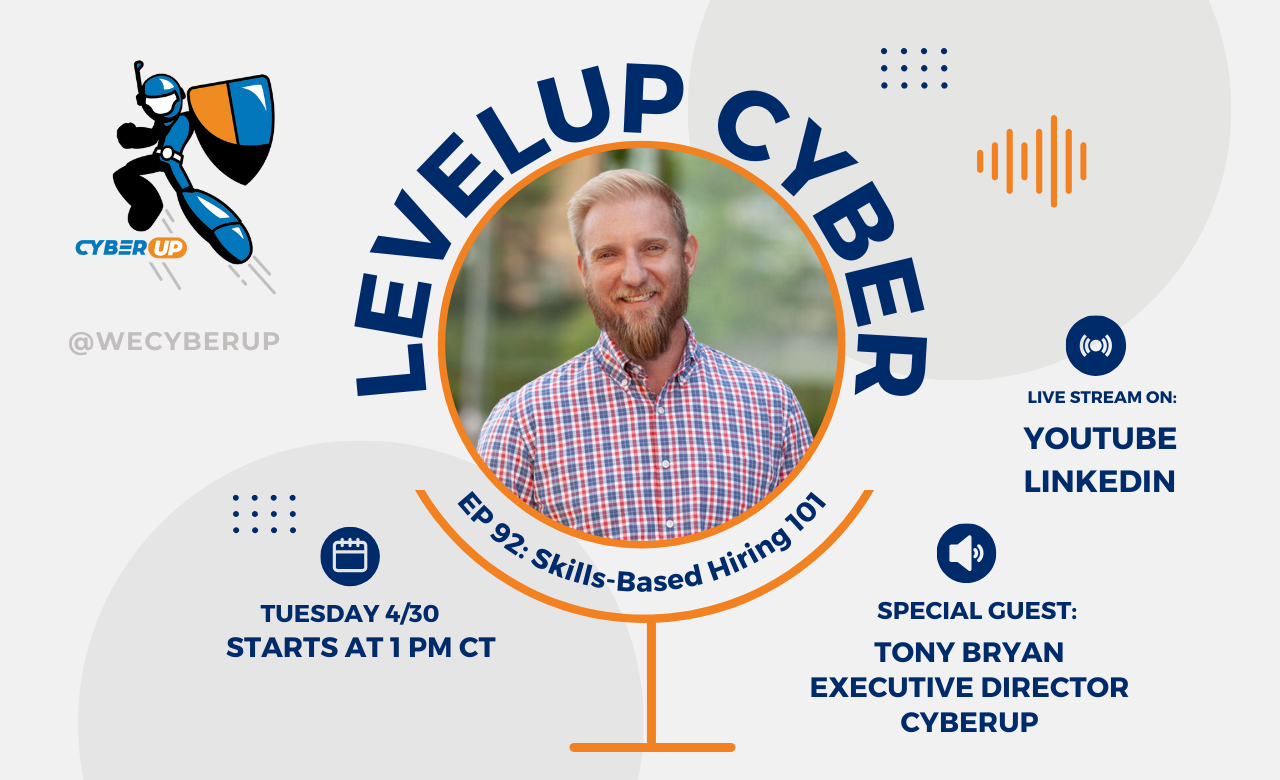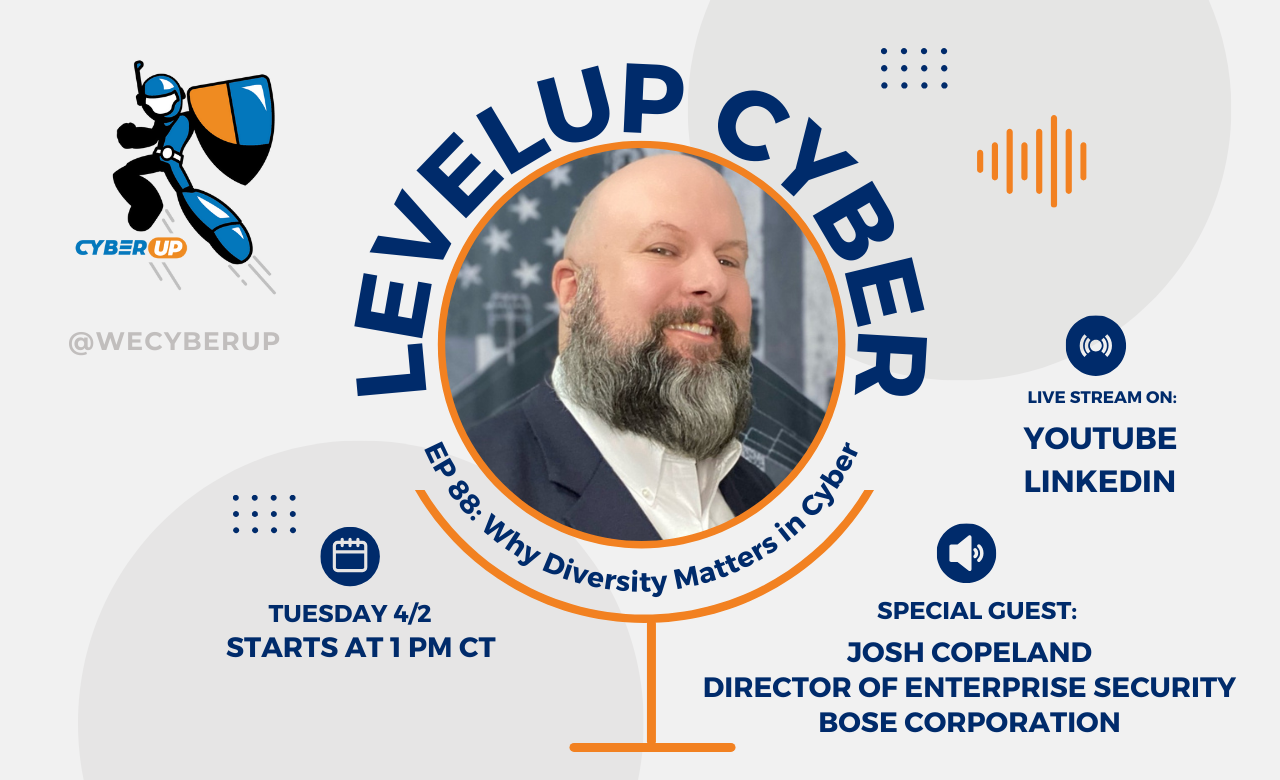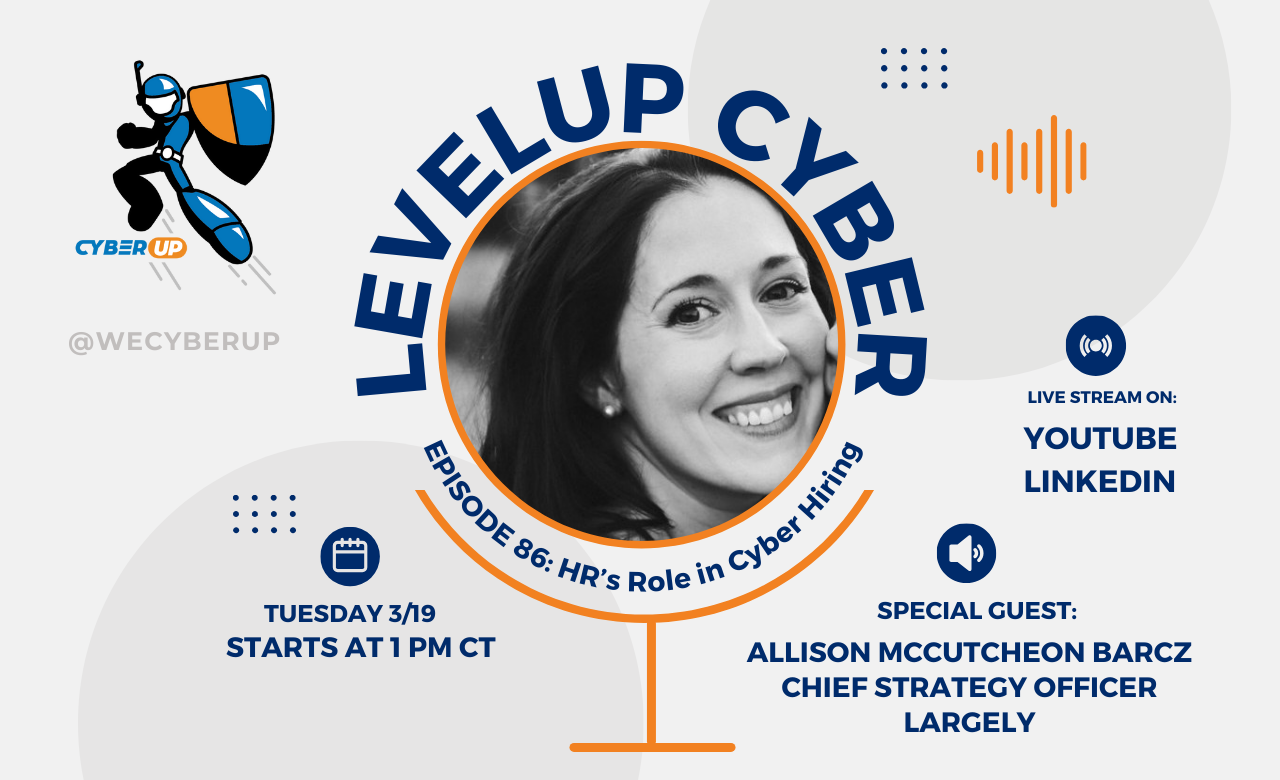
Cy Says Blog & Podcast
Posts about:
apprenticeship (4)


Ep 90: LevelUp Cyber w/Dominic Vogel - Is There a Cybersecurity Skills Gap?

Ep 91: LevelUp Cyber w/Laura Ohanian - A Hard Career Journey

Ep 89: LevelUp Cyber w/Otis Osborn - Veteran to Cybersecurity

Ep 88: LevelUp Cyber w/Joshua Copeland - Why Diversity Matters in Cyber

Ep 87: LevelUp Cyber w/Rachel Skillman - Skills to Pay the Bills

Ep 86: LevelUp Cyber w/Allison McCutcheon Barcz - HR's Role in Cyber Hiring

Ep 85: LevelUp Cyber w/Zach Lewis - Cyber in Higher Education

Ep 84: LevelUp Cyber w/Maduabuchi Nwankwo - Construction to Cyber

